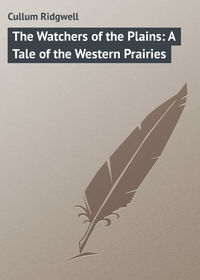 полная версия
полная версияThe Way of the Strong
The news at once pleased and terrified Monica. Her thoughts flew to Frank, and her appointment with him, and it became necessary at once to despatch a "rushed" wire to put him off. When this had been done she felt more at ease, and abandoned herself to her pleasure in the thought that, after all, her husband was to accompany her to the home which she had decided should be theirs.
But it left her with a fuller understanding of the difficulties and dangers with which she was beset. She realized that an added caution was needed. That it would be so easy to make a slip, and so run the risk of wrecking her newly found happiness.
Yes, there was no denying it, she was utterly happy during those first weeks of her married life, and frequently she found herself wondering how she had had the courage to face the long years of her spinsterhood.
It had been worth waiting for. She had married the man of her choice, the one man in all the world who appealed to her as the very essence of all that was great, and strong, and lovable in manhood. Here was no weakling to appeal to her sense of motherhood, but a powerful, commanding, yes, even ruthless personality, upon which she could lean in times when her woman's heart needed such strong support.
Then, too, she saw a side of his character which the world was never likely to see, and her pride and delight in the privilege were wholly womanly. To her he was the lover, tender, passionate, strong. And his jealous regard for her was an added delight to her woman's vanity and love.
The thought of his power in the world, his Napoleonic methods of openly seeking his adversary in the world of finance and crushing him to his will only made the intimacy of their lives all the sweeter to her. She was ambitious, ambitious for him, ambitious to stand at his side on every plane to which he soared.
Then came her arrival at Deep Willows; and at once she learned to her delight the chief reason of her husband's accompanying her.
She had expected a fine farm, built as farms were built in this new country. She had expected a great place, where comfort was sacrificed to the work in hand. She had expected the rush and busy life of a great commercial undertaking, wonderful organization, wonderful machinery, wonderful, crude buildings for the surer storing of crops. But, though she found all the wonders of machinery, all the busy life she had expected, all the buildings, she found something more, something she had not been led to expect in a man of Hendrie's plain tastes.
A miniature palace was awaiting her. A palace standing in its own wide grounds of park-like trees and delicious, shaded gardens. She found a home in which a king might have dwelt, one that had been designed by one of the most famous architects of the day.
It was set on the banks of a river, high up on a rising ground, whence, from its windows, a wide view of the almost illimitable wheat-fields spread out before the eyes, and, directly below, lay the roaring falls where the water of the river dropped churning into a wide gorge. Truly the setting of this home was as nearly perfect as a prodigal nature could make it.
The land in its immediate vicinity had no regularity; it was a tumbled profusion of natural splendor, perfectly trained in its own delightful disorder. The farm buildings were nowhere visible from the house or grounds. They were hidden behind a great stretch of woodland bluff so that nothing should spoil the view from the house. All that was visible was the wheat, stretching away in every direction over the undulating plains as far as the eye could see, centering about this perfect heart, and radiating to a distance of something like five miles.
Such was the home which Monica's love for Hendrie had brought her; and the man's joy in offering it for her acceptance was a thing to remember all her life.
There was that light of perfect happiness in his gray eyes as he stood in what he called the office, but which was, in reality, a library furnished with every luxury unlimited wealth could command. He held out a long blue envelope on which her name was inscribed.
"Now, Mon," he said, in a sober way which his eyes belied, "I guess you've seen most all, and – and I've been real happy showing it you. Make me happier still by taking this. When you've read the contents, just have it locked away in your safe deposit. It's – it's a present for a good girl."
Monica drew out the papers and gasped out her delight when she discovered that they were a deed of gift to her of Deep Willows. The house, furniture, and the grounds as separate from the farm.
"It's – it's too much, Alec!" she cried. "Oh, I can scarcely believe it – scarcely believe it."
The man's face was a study in perfect happiness as he feasted his eyes upon her beautiful flushed face. The power to give in this princely fashion touched him more nearly than perhaps any other feeling, next to his love for her.
But his commercial instinct made him laugh.
"You'll believe it, dear," he said dryly, "if ever you get busy paying for its up-keep out of your marriage settlement."
That night Monica realized that the culminating day of her love and ambitions had drawn to a close. Such a day could never come again, such moments could never be experienced twice in a lifetime. Her good fortune had come at last, come in abundance. She was the wife of one of the country's richest and most successful men. His love for her, and her love for him was perfect, utterly complete. She owned a home whose magnificence any prince might envy. What more could she hope, or wish for? All that the world seemed to have to offer was hers. It was all too wonderful – too wonderful.
Then, strangely enough, in the midst of her content, her thoughts mechanically drifted to other scenes, other days. They floated back to the now dim and distant struggles that lay behind her, and at once centered round a blue-eyed, fair-haired boy whom she had mothered and watched grow to manhood.
She slept badly that night. Her sleep was broken, fitful; and every time she slept it was to dream of Frank, and every dream was of trouble, trouble that always involved him.
A week later the call of business took Hendrie away. Such were his interests that he could never hope to remain for long in any one place. He went away after a brief, characteristic interview with Angus Moraine.
It occurred in the library.
"Angus," he said, "I want you to get a grip on this. Henceforth my wife represents me in all matters to do with this place. She's a business woman. So I leave her to your care. But remember, she's – me."
At that moment Angus Moraine's cup of bitterness was filled to overflowing. He had seen it coming from the outset, and he cursed softly under his breath as the millionaire took his departure.
With Hendrie's going, Monica's thoughts were once more free to think of that other interest in her life. Nor was she the woman to abandon any course she had once embarked upon. If it had been Hendrie's pleasure to give to her, it was no less her pleasure to complete the equipment of Frank, which had been her life's endeavor. Now, with all the means ready to hand, she decided to act at once. So, to this end, she wrote him full and careful instructions.
Some days later a stranger registered at the Russell Hotel, in Everton, which was a small hamlet situated on the eastern boundary of Hendrie's farm. He was tall and young, blue-eyed and fair-haired, and he registered in the name of Frank Smith.
On the same day Angus Moraine received word from Monica's order, "small hell" reigned among his foremen the day. She said she intended to explore the country round about; she wanted to see something of its people.
With the coming of this order Angus understood that he was no longer master at Deep Willows, and his resentment was silent but deadly. He had foreseen the position. He had foreseen this ousting, he told himself, and now it had come. At no time was he an easy man, but he was reasonably fair and just to those who worked under him. It was only in moments when things went wrong with him that the harsh, underlying cruelty of his nature was displayed. Things had gone wrong with him now, and, on the day he received Monica's order, "small hell" reigned amongst his foremen and overseers. Just now he was going through an unhappy time, and he was determined that something of it should be passed on to those within his reach.
After a long day of arduous work he finally threw off the yoke of his labors, and prepared for his usual evening recreation. He had a fresh horse saddled, and rode off down the river towards Everton.
Here it was his nightly custom to foregather, and, in his choice, he proved something of his Scottish ancestry. He rarely missed his evening whisky in the office of the little hotel. It was his custom to sit there for two hours or so, reading papers and sipping his drink, listening to, but rarely taking part in, the gossip of the villagers assembled. The latter was partly from the natural unsociability of his disposition, and partly from pride of position. Here he was looked upon as a little king, and he was as vain as he was churlish.
He drew near his destination. In the dusk the few odd lights of Everton shone out through the bluff of trees, in the midst of which the village was set. The man's habit was very strong. He always rode at a rapid gallop the whole of the six miles to the village, and he always drew his horse down to a walk at this point, where the private track from the farm converged with the main trail. The main trail was an old trading route of the Indian days which cut its way through the heart of Hendrie's land. It followed the south bank of the river and crossed the water at this point. It was for the purpose of avoiding this ford that the private road had been brought into existence.
Likewise, at this point, Angus always filled and lighted his pipe, a rank-smelling briar, well burnt down on one side. There was always reason for what he did. He rode hard to give himself ample time for his evening's recreation. He walked his horse at this point to cool him off. He lighted his evening pipe here because he was beyond the range of the fields of wheat, and though there was no fear of fire at this season of the year, he preferred the habit to the risk of inadvertently setting fire to the crops when they were ripened.
He pulled up his horse and struck a match, and, instantly, in the stillness of the evening, became aware of approaching wheels. He heard horses take the water at the ford; and so unusual was the phenomenon at this hour of the evening that he looked down the converging trail to see who was driving into the village.
He heard voices, and so still was the evening that their tones came to him distinctly. Two people were evidently in the vehicle; a man and a woman.
The horses had ceased to splash. He heard them coming up the slope, and, almost unconsciously, he drew back into the shadow of the trees. This left him with his view of the other trail shut off, but, ahead, he could see the convergence, and when the vehicle passed that point it would be in full view.
He waited. The horses were abreast of him, beyond the trees. Suddenly the sound of their hoofs died out. They had come to a standstill, and he heard voices again.
"Oh, Mon, it's been a glorious day. You are good to me. Was there ever such a woman in the world?"
It was a man's voice speaking. Angus had caught the name "Mon," and his ears strained doubly hard to hear all that passed between them. Now the woman was speaking. He heard her laugh, a laugh he perfectly well knew.
"Don't talk like that, you silly Frank," she cried. "But it has been a day, hasn't it? We've had it all to ourselves, without one single cloud to mar it. You'll be all right now. You can get back to the hotel and no one will be the wiser for our meeting. I'll write you when it is safe to come over again. It must be soon. I want you with me so much, and it is perfectly safe when Alec is away. Good night, dear boy."
Angus heard a sound and recognized it. She had kissed the man.
The blood mounted to his head. Then it receded, leaving him cold. He sat quite still.
A moment later he heard the man walking toward the junction of the roads. Then he heard the scuffle of horses' hoofs as the vehicle was turned about. And again he heard the animals take the water.
Still he sat on.
Presently he beheld a tall, burly figure in tweeds emerge from the other trail. He was a powerfully built man, and, even in that light, he could see the thick, fair hair under the brim of the stranger's prairie hat.
"So that's your game, mam, is it?" he muttered. "I guessed Hendrie had made a mess of things marrying his secretary. I – wonder."
He waited until the man had gained considerable distance. Then he lifted the reins, and permitted his impatient horse to walk on towards the village.
CHAPTER VIII
ANGUS HEARS SOME TALK
Angus Moraine's whole attitude toward Monica underwent a sudden change. That his feelings changed is doubtful. His feelings rarely changed about anything. However, where before an evident, but tacit antagonism underlaid all his service of the new mistress of Deep Willows, now he only too readily acquiesced to her lightest wish, and even went far out of his way to obtain her confidence, and inspire her good feeling toward him.
The unsuspicious Monica more than appreciated his efforts. He was her husband's trusted employee, he was a big factor in her husband's affairs, and it seemed good that she should be taken thus readily to the bosom of those who served the man she loved.
Her days were hours of delight that were all too short. Yet with each passing moment, she felt that she was safely drawing nearer the completion of those plans which she had long ago designed for Frank. She knew that when finally settled, they would leave her without the tiniest shadow upon her horizon.
The affairs of the farm she intended purchasing were well in hand. She and Frank had inspected it together, and both had approved. Now it was only for the lawyers, whom Monica had been careful to let Frank employ to complete the arrangements, and for the money she must provide to be forthcoming.
In the meantime there was much to discuss, much to plan for the future, and, with Hendrie away, Monica did not hesitate to see Frank as often, perhaps more often than was necessary. Her husband always kept her posted as to his movements, and thus she was left perfectly safe and free for the repetition of these clandestine visits.
Had she only known that Angus had recognized her and witnessed her parting from Frank after inspecting the new farm, her peace of mind would have known none of the ease it now enjoyed. But she remained in ignorance of the fact, and the astute Scot was determined to give her no cause for suspicion. Thus had he adopted his fresh attitude, but for what more subtle reason it would have been difficult to say.
The change in his manner extended in other directions. It did not affect those who worked under him, but, to those whom he met during his evening recreations, it came well-nigh as a staggering surprise.
For some evenings no one commented upon it. Perhaps his geniality was so extraordinary that men doubted their senses, and wondered if it were not a delusion brought on by their mild, nightly potions. But it continued with such definite persistence that remark at last found expression.
The first mention of it came from Abe Hopkinson, who dealt in dry-goods and canned "truck." He was sitting with his feet thrust upon a table in the office of the Russell Hotel early one evening. For some time he had been reflectively chewing. Suddenly his face flushed with emotion. He could stand the doubt no longer.
"Say," he cried, thumping one heavily shod foot upon the well-worn blotter, and setting the inkstand rattling, "wot's hit old leather-belly?"
His inelegant inquiry was addressed to the company generally. Pete Farline, famed for his bad drugs and antiquated "notion" department, breathed a deep sigh of relief.
"I'm glad you ast that, Abe," he said. "I've been troubled some. Guessed I'd have to hit the water-wagon a piece."
Sid Ellerton looked up from the pages of a cheap magazine.
"Meaning the whisky souse from Scotland, via Deep Willows?" he asked vaguely, and returned to his reading.
A fair-haired little man, by name Josh Taylor, who spent his winter days dissecting frozen beef, and his summer evenings in his butcher's store smashing flies on the sides of beef with the flat of a knife, mildly reproved him.
"Guess you read too much fiction, Sid. It makes you ask fool questions. Who else would Abe be talkin' of but that haggis-faced moss-back from the Hebrides? Ain't he made us all feel queer these days an' days? Say, he's gettin' that soft I get around dead scared he'll get a fancy to kiss me."
Abe grinned over at Josh's hard face, with its unshaven chin, and his hair standing rigidly on his bullet head.
He shook his head.
"I'd say Angus is soft, but – "
A titter went round the room as Abe broke off. He had just seen the reflection of Angus Moraine in the broken mirror which adorned the opposite wall. He was standing in the doorway. Abe sat wondering how much of their talk the Scot had overheard when that individual's voice terminated the moment's merriment.
"Feeling good, boys?" he inquired, in his new tone of amiability.
Pete hastily jerked his feet on to the top of the cold stove, assuming a nonchalant air.
"Feelin' good, Mr. Moraine?" he exclaimed. "Why, I'd say. Say, this tarnation country's settling that rapid I had a new customer to-day. Guess I'm figgerin' to start a drug trust."
Angus smiled with the rest as he moved across to his usual seat, a rigid armchair under the lamp bracket on the wall. The table bell was within his reach, and he struck it, and picked up an illustrated Sunday paper more than a month old.
"Who was your customer?" he asked indifferently.
"Why, a guy that's been gettin' around a heap lately. He stops in this house when he comes. Dresses in fancy store clothes, and wears fair hair and blue eyes. Guess he's maybe twenty or more. Calls himself Frank Smith. He was buyin' fancy perfume for a lady."
Sid looked up.
"First got around soon after Mrs. Hendrie come to the farm," he said, and lost himself promptly in the pages of his magazine.
"I've seen him," Angus said quietly, without lifting his eyes from the absorbing colored illustrations. "A flash-looking feller."
"That's him," cried Pete quickly. "He ain't unlike Mr. Hendrie, only bigger. Guess he's a deal better to look at, too. Maybe he's a relation of the lady's."
"Maybe," muttered Angus indifferently. Then, as the hotel proprietor, who was also bartender and anything else required in the service of his house, appeared in answer to the bell, he ordered whisky, and nodded comprehensively at the company. "Take the orders," he said shortly.
But this was too much. Such a sensation could not be endured without some outward expression. Pete's feet fell off the stove with a clatter, and kicked the loose damper into the iron cuspidor. Abe swallowed his chew of tobacco and nearly choked. Sid Ellerton dropped his magazine, and, in his endeavor to save it from the splotches of tobacco juice on the floor, shot the chair from under him. Unfortunately the chair struck Josh violently on the knee as it overturned, and set the hasty butcher cursing with a fine discrimination.
However, these involuntary expressions of feeling subsided in time for each man to give his order, and Lionel K. Sharpe, the proprietor, precipitated himself from the room with his head whirling, and a wild fear gripping him lest Mr. Moraine's bill should be disputed at the end of the month.
Abe took a fresh chew, and Pete's feet returned to the top of the stove, but Josh's knee still ached when the drinks arrived. Nor did poor Sid's loss of interest in a love story, so hopelessly smeared with tobacco juice, prevent him brightening visibly as he received his refreshment.
The little man raised his glass to his lips and toasted his host.
"Here's 'how,' Mr. Moraine, sir," he said, with a smile, feeling that, after all, there were still compensations for the loss of a besmirched love story.
The chorus was taken up by the rest of the company, and they all solemnly drank. Somehow there was a pretty general feeling that it was not a moment for levity.
"Smith stopping here now?" inquired Angus, setting his glass down a moment later.
Abe turned to the tattered register.
"Booked in yesterday," he said, thumbing down the page which contained the list of a whole year's guests. "Ah – paid," he added, running his eye across to the "remarks" column. "Guess he's gone. I'd say that perfume was a parting gift to his lady friend, Pete."
"And who may she be?" inquired Angus, innocently turning the page of his paper.
No one answered him. An exchange of glances went round the room, carefully leaving the manager out.
Presently Angus looked up.
"Eh?" he demanded.
Abe cleared his throat.
"Guess I don't know of any female running loose around here. They've most all got local beaus," he said, while he shifted his position uncomfortably.
Sid caught his eye and shook his head.
"Can't say," he observed. "I see him once with a gal. They wer' a long piece off. She was tall an' – an' upstandin'. Didn't just recognize her."
"Guess I see him with her, too," put in Pete, almost eagerly. "Seen him several times with her. They were way out riding. I was too far off to see them right."
"She was tall, eh?" said Josh reflectively. "Guess that's who I met on the trail driving with him. Maybe she belongs to one of the farms."
"Maybe," muttered Angus dryly. "Anyway, I don't guess it's up to us to worry our heads gray over him and his lady friend. But it's good to see folks coming around. This place is surely going to boom, fellers. It's going to be a great town. Hendrie's working on a big scheme that's going to bring the railway through here, and set values going up sky high. Don't say I told you nothing. I've closed a deal in town lots for myself, and if you've got any spare dollars I'd advise – "
He broke off and looked across at the doorway as another townsman came in. It was Charlie Maybee, the postmaster.
"Evening, boys. Evening, Mr. Moraine," he cried, his genial face beaming cordially on everybody. "Say, Mr. Moraine, I guessed maybe I'd find you. I got some mail here for Mrs. Hendrie. It's local, and addressed to the post-office. We don't get mail much that way, so I thought I'd hand it to you. It'll save the lady comin' along in for it."
He produced the letter and handed it to Angus while accepting his invitation to drink.
"Mailed locally?" the manager inquired casually.
"Yes, This morning."
"Ah."
The keen-eyed Scot intercepted another exchange of meaning glances, and looked from one to the other with some severity.
"Say," he cried, with a sudden and studied return to his usual dour manner, "some of you boys seem to be saying one thing and – thinking another. Maybe you know something about this letter."
An instant denial leaped to everybody's lips, but Angus was playing his part too well for these country town-folk. He maintained his atmosphere of displeasure and suspicion, and finally the impulsive butcher cleared his throat.
"Pshaw!" he exclaimed nervously. "What's the use beatin' around? We're all good friends right here, an' we all feel that we owe Mr. Hendrie a mighty lot for what he's doing for this city. An', I guess, when there's things goin' on that don't seem right by him it's up to us to open our mouths. We don't know a thing about that letter, Mr. Moraine, but it just fits in with things we do know – all of us. We know that just as soon as Mr. Hendrie disappears from the farm some other feller appears, and his name's Frank Smith, and he mostly gets around riding and driving with Mrs. Hendrie. That's what we know."
The butcher's forehead was beaded with perspiration as he came to the end of his statement, but he stared defiantly round at the disapproving faces of his friends.
Angus fixed him with a stern eye.
"You surely do know a lot," he exclaimed, with angry sarcasm. "And I want to tell you that I know a lot – too. This is what I know. What you're saying is a damned scandal. Do you get me? A damned scandal," he reiterated. "And if I told Mr. Hendrie he'd have you all for criminal libel – or worse. Now, see here," he went on, after a dramatic pause, "I tell you plainly – if I ever hear another breath of the like of this yarn going around I'll see that Mr. Hendrie has you all lagged for a pack of libelous rascals who ought to be in penitentiary."









